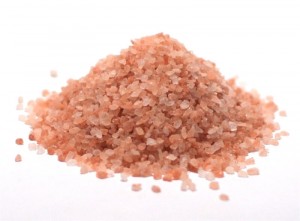
Many of us are inspired to eat clean and live a healthy lifestyle. Unfortunately people often fail to follow through on their health goals. Two of the biggest obstacles people face when trying to eat healthy are lack of time and not having the right ingredients on hand. Having a well-planned shopping list can help you save money and to accomplish your goals.
Here are some simple tips that can help you shop smart and stress-free:
1. Plan ahead
It is important to be prepared. Before your next trip to the store, plan your meals, check which of the products you have and make a list with what you need. Having a shopping list with you will save you time once you get to the store, lower the chances of impulse purchases and it will also help you to avoid multiple shopping trips for the items you forgot. The more often you go to the store the more likely you are to spend money on things you do not really need.
2. Know when to buy organic
When possible opt for organic fruits and vegetables. This is especially important when it comes to purchasing items that are known to have high levels pesticide contamination. We recommend using the Environmental Working Group ‘s 2014 Shopper’s Guide to Pesticides in Produce to find out when it is safe to buy conventional fruits and vegetables (the clean fifteen) and when you should look for organic (the dirty dozen). When choosing animal protein and dairy products, look for free-range, antibiotic free chicken and eggs, grass-fed beef and lamb, and pastured pork. Avoid factory farmed animal products at all costs.
3. Check the ingredients
Remember to always check the ingredients and the nutrition information when buying any food product that comes in a package. Often you will find that the product you are buying contains ingredients you can`t even pronounce or you would never think of adding. The sad truth is that many of those ingredients are chemical additives or necessary and highly processed sweeteners such as high fructose corn syrup (HFCS). Make mindful and informed decisions and do not trust the claims on the front of the box or package such as “all natural” or “100% natural”. Remember that almost in almost all cases, fewer ingredients is better.
4. Avoid processed foods
Avoid aisles with processed food and focus on the fresh produce section. Avoid the products in the checkout section, according to a recent study by the Center for Science in the Public Interest (CSPI) 90% of checkout food options are unhealthy. Billions of dollars are spent annually on in-store marketing. While profitable for the processed food industry, it promotes poor nutrition and endangers your health; simply avoid buying these products.
5. Buy local, seasonal food
Learn what foods are in season and try to buy your food locally. You will be rewarded with high quality nutritious produce that tastes better and costs less. To find out what’s currently available in your area, check out Sustainable.org’s Seasonal Food Guide or simply visit your local farmer`s market and speak with the vendors.
Good nutrition starts with willpower, knowledge and smart choices in your everyday life. If you shop responsibly and avoid unhealthy temptations you will always be surrounded by healthy foods. Even if at first you find grocery shopping overwhelming or stressful, remember that it will get easier with time. You will feel better thanks to the smart food choices you are making.




